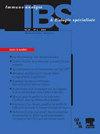The Role of APOE and NF-κB in Alzheimer’s Disease
引用次数: 4
Abstract
Apolipoprotein E (APOE) has three different isoforms, with APOE4 carriers representing a major risk factor for the development of Alzheimer’s disease (AD). AD is the most common form of dementia, and is a relentlessly progressive disorder that afflicts the aged, characterized by severe memory loss. Presently, AD does not have a cure, increasing the urgency for the development of novel therapeutics for the prevention/treatment of AD. The APOE4 isoform is associated with many pathological mechanisms, such as increased neuroinflammation and a reduction in β-amyloid (Aβ) clearance. The accumulation of Aβ plaques in the brain is a hallmark of AD. The presence of APOE4 can increase neuroinflammation via overactivation of the nuclear factor kappa B (NF-κB) pathway. The NF-κB pathway is a family of transcription factors involved with regulating over 400 genes involved with inflammation. AD is associated with sustained inflammation and an overactivation of the NF-κB pathway. Therefore, targeting the APOE4 isoform and suppressing the NF-κB pathway using anti-inflammatory compounds may result in the development of novel therapeutics for the prevention/treatment of AD.APOE和NF-κB在阿尔茨海默病中的作用
载脂蛋白E (APOE)有三种不同的亚型,APOE4携带者是阿尔茨海默病(AD)发展的主要危险因素。阿尔茨海默病是最常见的痴呆症,是一种折磨老年人的持续进行性疾病,其特征是严重的记忆丧失。目前,阿尔茨海默病还没有治愈的方法,这增加了开发新的治疗方法来预防/治疗阿尔茨海默病的紧迫性。APOE4亚型与许多病理机制有关,如神经炎症增加和β-淀粉样蛋白(a β)清除减少。大脑中β斑块的积累是阿尔茨海默病的标志。APOE4的存在可通过过度激活核因子κB (NF-κB)途径增加神经炎症。NF-κB通路是一个转录因子家族,参与调节400多个与炎症有关的基因。AD与持续炎症和NF-κB通路过度激活有关。因此,针对APOE4亚型,使用抗炎化合物抑制NF-κB通路,可能会开发出预防/治疗AD的新疗法。
本文章由计算机程序翻译,如有差异,请以英文原文为准。
求助全文
约1分钟内获得全文
求助全文

 求助内容:
求助内容: 应助结果提醒方式:
应助结果提醒方式:


